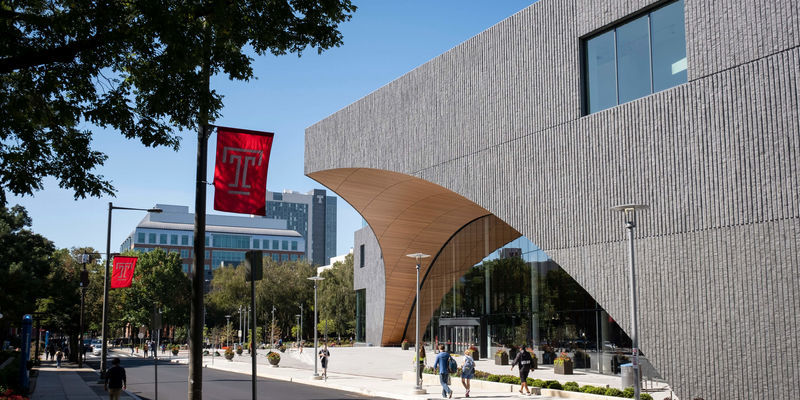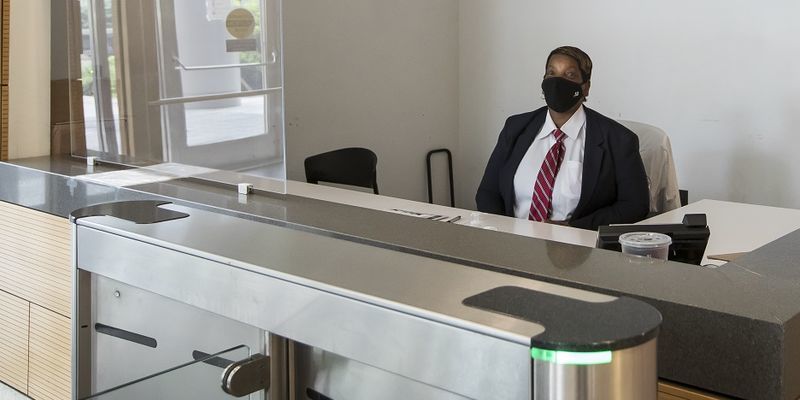Student return to campus guide: What to do when you’re sick and more
The first step for students feeling unwell is to stay home. Learn what else is important to do if you’re feeling sick so we can prevent the spread of COVID-19.

Campus is still going to be the campus we love, but a few things are going to be very different. No more going to class if you’re feeling a bit sick. Updated attendance policies. Fewer people in class with you. More signs to pay attention to.
Here are a few key points from the full Student Return Guide so you know exactly what to do if you’re feeling unwell and other student-specific info about the return to campus this fall.
Something important to remember, though, is that while we continue to carefully monitor and respond to news information about COVID-19, our return plans must be flexible. We are prepared to pivot as conditions change over time so that we can keep our community safe.
What you should do to help prevent you from getting sick or getting others sick.
There are four behaviors we all need to follow and encourage our peers to follow to prevent the risk of spreading COVID-19:
- use a facial covering. (Cloth, reusable facial coverings, whether they are handmade or manufactured are sufficient. Coverings with a vent, handkerchiefs and gaiters are not considered acceptable.)
- wash your hands.
- practice physical distancing.
- monitor your health
Get used to these behaviors because they are exactly what we need to do to be together again on campus. There will be spots throughout campus where you can pick up a mask if you forgot yours; hand sanitizer dispensers are being installed in volume in every building; we’re reconfiguring classrooms and the flow of foot traffic to facilitate physical distancings; and we have guidelines for what to do when you’re feeling unwell.
Watch this video to learn more about these healthy behaviors and why they’re so important.
What to do if you’re sick.
First, don’t go to class. If you have any of the following COVID-19 symptoms, stay home and let your professor know you’re unable to attend class.
- Cough
- Shortness of breath or difficulty breathing
- Fever (oral temperature above 100.4°F)
- Chills, or repeated shaking with chills
- Muscle or body aches
- Headache
- Sore throat
- New loss of taste or smell
- Congestion or runny nose
- Out-of-the-ordinary fatigue
As we know, we’re learning more about COVID-19 every day and this list of symptoms is not exhaustive. If you’re experiencing anything out of the ordinary for you, be cautious and stay home. We’re implementing a new, flexible attendance policy—more on that later.
Next, take the CDC Self Checker for additional guidance and then contact Student Health Services (215-204-7500), your healthcare provider, or the TUH COVID-19 triage hotline (215- 707-6999), and seek medical attention if necessary.
Finally, you can get tested. There will be a COVID-19 Testing and Treatment facility on campus and a Contact Tracing Unit. The new testing center will be located in a storefront along Cecil B. Moore Avenue on the street level of Morgan Hall and will have its own capabilities to test for the virus that causes COVID-19. The site will be able to run up to 400 tests per week to start, with rapid results available in as little as 15 minutes. Visits will be by appointment only, and pre-screening will be conducted via telemedicine.
The rapid testing will be prioritized for students, faculty and staff who are symptomatic with COVID-19 and their close contacts. Student and Employee Health Services will also be conducting regular screening and testing of high-risk populations in the Temple community, including those who work in clinical settings, those who work with the public regularly, and student-athletes.
If you develop any of the emergency medical symptoms while at home or on campus, such as trouble breathing; persistent pain or pressure in the chest; new confusion; inability to wake or stay awake; bluish lips or face; any severe symptoms for which you suspect you may need urgent medical attention, seek medical attention immediately and call 911.
Get to know the new, universitywide standardized attendance policy.
If you are unable to attend an in-person class or course activity due to illness, or are unable to participate in an online class or course activity, you should notify your instructor in advance and call Student Health Services at 215-204-7500. You should keep up with your coursework as much as possible and work with your instructors to reschedule any synchronous exams, labs and other critical activities. Though increased flexibility will be granted, course assessments such as assignments, tests and exams must be completed for learning goals to be reached.
Students who miss a class or activity because of COVID-19 related precautions will not be penalized for their absence and will not be asked to provide formal documentation from a healthcare provider. Read more about how the policy works.
If you have a health condition that requires reasonable accommodation, contact Temple’s Office of Disability Resources and Services (215-204-1280) for assistance. If you have personal circumstances that lead you to prefer a full or partial online course load for the fall 2020 semester, consult your academic advisor or academic program coordinator for assistance.
Classrooms and buildings across campus are going to look a little different.
Temple’s Office of Facilities Management and Environmental Health and Radiation Safety Departments are partnering with schools, colleges and administrative units to evaluate work spaces, classrooms and common areas so it will be easier to practice physical distancing and the other healthy behaviors we mentioned before. Expect to see new floor decals and signage directing foot traffic; touchless features, such as sinks and water fountains; hand sanitizer dispensers; and physical distancing barriers.
Classrooms and other learning spaces are being reconfigured to create more space between people, and areas across campus that have not been used for instruction before are being explored as possible areas to safely hold in-person classes. It is important that students sit only in designated seats or work stations. Students, faculty or staff meeting in any common space, including classrooms, offices or meeting rooms, will be required to maintain a six-foot distance and wear a face covering.
Learn more about what safety measures are being implemented across all buildings on campus.
How to stay informed.
Regularly check temple.edu/return and the Return to Campus tab within TUportal. These resources are frequently updated with the most current information, such as new protocols and guides for planning your personal return.
Also, be sure to check your Temple email frequently for communication from university leadership, your school or college and other departments. Following the university (@TempleUniv) on social media can also help you stay on top of the latest information.
Read the full Student Return Guide.


